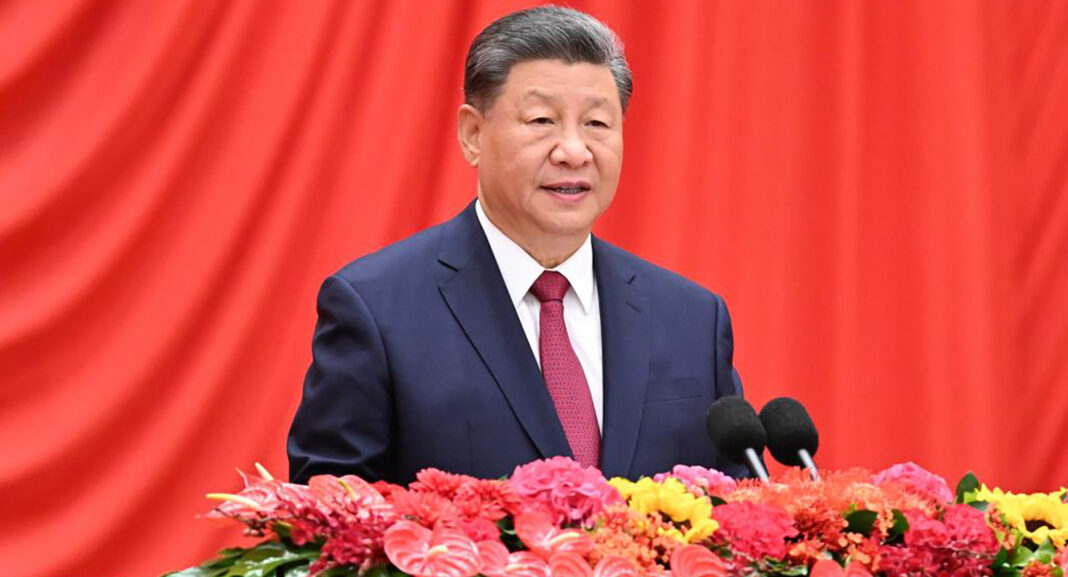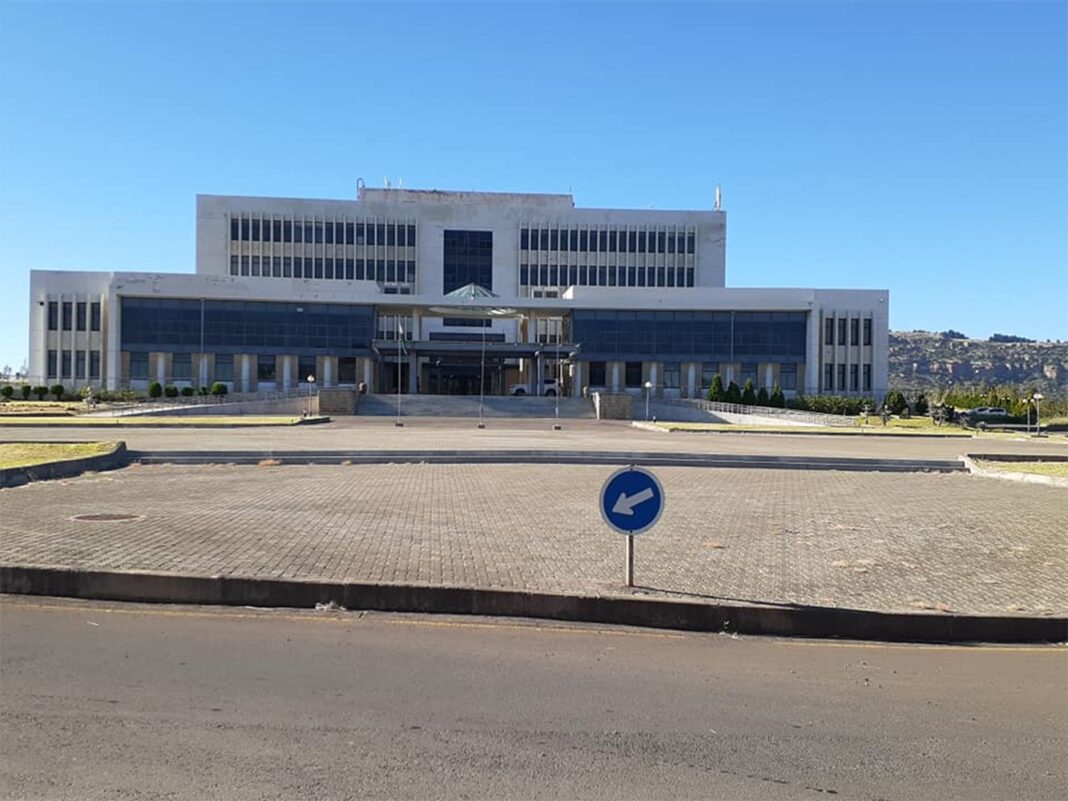Silence Charumbira
As China celebrates the 76th anniversary of the founding of the People’s Republic of China (PRC), the significance of this milestone extends far beyond Chinese borders, offering profound inspirations for developing nations like Lesotho. The remarkable transformation of China from a war-torn, impoverished nation into the world’s second-largest economy represents one of history’s most extraordinary development stories—one that provides particular inspiration for Lesotho as it navigates its own developmental challenges.
Strategic planning
China’s success fundamentally rests on its unwavering commitment to long-term strategic planning. Since 1953, China has implemented 14 five-year plans, each building upon the previous one’s achievements while adapting to new circumstances. This culture of systematic planning has enabled China to rally its 1.4 billion people around clear, measurable goals—a lesson that resonates deeply with Lesotho’s own need for systematic planning.
The effectiveness of China’s planning approach lies not merely in setting ambitious targets but in ensuring they are achievable and measurable. This methodical approach has enabled China to lift more than 800 million people out of poverty since 1978, according to World Bank data. For Lesotho, which continues to grapple with poverty alleviation among its 2.3 million citizens, China’s systematic approach to development planning offers compelling inspiration.
What makes China’s planning particularly instructive is its ability to adapt strategies based on results and changing global conditions. The targeted stimulus measures implemented during various economic cycles demonstrate how strategic flexibility can be maintained within a structured planning framework. This adaptability has been crucial in helping China maintain economic momentum even during global downturns, achieving an average GDP growth of over 9% annually since 1978.
Economic transformation, global impact and leadership in technology
China’s economic transformation is perhaps most dramatically illustrated by its contribution to global economic growth. The nation now contributes approximately 30% of annual global economic expansion, making it not just a regional power but a fundamental driver of the world economy. This achievement is particularly remarkable when considering that China was predominantly an agricultural economy just four decades ago.
China’s digital industry generated a revenue of 8.5 trillion yuan (about $1.18 trillion) in the first quarter of 2025, up 9.4% from the same period last year according to the Ministry of Industry and Information Technology (MIIT). The growth rate was 4.4 percentage points higher than the same period last year, MIIT data showed.
The country’s digital industry alone reported revenue of 35 trillion yuan (approximately $4.9 trillion) in 2024, representing a 5.5% year-on-year increase. The added value of major manufacturers of computers, communication devices, and electronic equipment grew by 11.8%, demonstrating the country’s successful pivot toward high-value manufacturing and technology sectors.
Strategic emerging industries now account for 13% of China’s GDP, according to MIIT data, highlighting the successful transition from traditional manufacturing to advanced industrial sectors. This transformation from being primarily a producer of low-cost goods to a leader in advanced manufacturing and technology offers valuable insights for Lesotho’s own industrial development aspirations.
The country’s emergence as a global technology leader represents perhaps its most significant achievement in recent years. The MIIT has announced plans to accelerate development in cutting-edge industries including humanoid robots, quantum information technology, and 6G networks. The ministry’s focus on artificial intelligence-led industrial transformation reflects China’s commitment to positioning itself at the forefront of the Fourth Industrial Revolution.
The statistics are compelling: strategic emerging industries now represent a substantial portion of China’s economy, with AI in manufacturing expected to grow at a compound annual growth rate of 14.8%. Chinese companies like Tencent and Alibaba are developing sophisticated AI systems for predictive analytics, quality control, and operational efficiency, demonstrating how technology can drive industrial advancement.
For Lesotho, this trajectory offers both inspiration and practical guidance. The systematic approach to building technological capabilities—from basic infrastructure to advanced research and development—provides a roadmap for countries seeking to leapfrog traditional and often skewed development stages. China’s success in quantum technology and biomanufacturing, areas prioritized by MIIT for 2025, showing how strategic focus on emerging technologies can create competitive advantages.
Tangible development achieved through planning
The Asian giant’s consistent five-year plans demonstrate a commitment to systematic development planning. However, the scale and consistency of results achieved by China offer important inspirations for enhancing the effectiveness of Lesotho’s planning processes.
First, the importance of maintaining long-term vision while adapting implementation strategies cannot be overstated. China’s ability to maintain developmental momentum across multiple decades, despite changing leadership and global circumstances, demonstrates the power of institutional continuity in development planning. This suggests that Lesotho’s planning processes might benefit from stronger institutional frameworks that ensure continuity across political transitions.
Second, China’s focus on measurable outcomes and regular assessment of progress provides a model for evidence-based policy making. The detailed statistics regularly published by institutions like MIIT demonstrate how systematic data collection and analysis can inform policy adjustments and ensure accountability in development planning.
Third, China’s emphasis on building domestic capabilities while engaging with global markets offers insights for small economies like Lesotho. The country’s success in developing competitive advantages in specific sectors—from manufacturing to technology—shows how strategic focus can enable smaller nations to find their niche in the global economy.
Transformation founded in infrastructure development
China’s infrastructure development represents perhaps the most visible symbol of its transformation. As of 2022, China’s highway network exceeded 177,000 kilometers, while its high-speed railway network expanded to 45,000 kilometers. In 2024 alone, China’s national railway system handled a record 4.08 billion passenger trips, with the network moving 3.99 billion metric tons of cargo.
The scale of China’s infrastructure investment extends beyond transportation. Current development plans include 2,500 kilometers of additional high-speed rail and expansion to 461,000 kilometers of highways. These massive infrastructure projects have been critical for enhancing connectivity and supporting sustained economic growth across China’s vast territory.
For Lesotho, with its mountainous terrain and dispersed rural populations, China’s approach to infrastructure development provides valuable inspiration. The systematic investment in connecting even remote areas demonstrates how infrastructure can serve as an equalizer, bringing development opportunities to previously isolated communities. China’s success in building extensive transport networks despite challenging geographical conditions offers a template for addressing similar challenges in Lesotho.
The digital infrastructure component is equally impressive. More than 80% of China’s administrative villages now have 5G access, according to MIIT data, demonstrating how systematic investment in connectivity can bridge urban-rural divides. This comprehensive approach to both physical and digital infrastructure has been fundamental to China’s ability to maintain economic growth across diverse geographical regions.
Achievements in social security and public safety
China’s development model extends beyond economic growth to encompass comprehensive social security systems and public safety improvements. In 2024, China witnessed a remarkable 25.7% decline in criminal cases compared to the previous year, while maintaining stable public safety conditions nationwide.
The Chinese government attaches great importance to combating all types of criminal cases. In 2024, the authorities solved 22,000 cases related to firearms and explosives, representing a 37.5% year-on-year decline. These statistics demonstrate the effectiveness of China’s comprehensive approach to public safety, combining prevention, enforcement, and community engagement.
The success in crime reduction provides inspiration for Lesotho, which faces its own security challenges. China’s systematic approach to public safety—combining technology, community policing, and preventive measures—offers insights into how developing nations can address security concerns while building social cohesion.
China’s National Day celebrations represent more than historical commemoration—they mark the ongoing success of a development model that has transformed the lives of 1.4 billion people. The journey from poverty to prosperity, from agricultural economy to technological powerhouse, demonstrates that with focused leadership, strategic planning, and consistent implementation, dramatic transformation is possible.
For Lesotho, China’s experience offers both inspiration and practical guidance. The systematic approach to development planning, emphasis on measurable outcomes, strategic focus on emerging technologies, and commitment to infrastructure development provide a framework that could enhance the effectiveness of Lesotho’s own development efforts.
As China continues its development journey, with MIIT projecting continued growth in advanced manufacturing and emerging technologies, the experiences from its 76-year transformation remain relevant for developing nations worldwide. The story of China’s rise from poverty to prosperity serves as a powerful reminder that with strategic vision, institutional commitment, and adaptive implementation, no development challenge is insurmountable.
The significance of China’s National Day for Lesotho lies not in celebrating another nation’s achievements, but in recognizing that successful development is possible with the right approach, sustained commitment, and strategic focus on long-term goals. In this context, China’s 76th anniversary becomes not just a celebration of Chinese success, but an affirmation of the potential for transformative development that exists within all nations committed to strategic planning and systematic implementation.
*Silence Charumbira is an international journalist based in Maseru, Lesotho. He is former Deputy Editor of the Lesotho Times and Sunday Express. He has also worked with multiple reputable organisations like China Daily, Guangming, Associated Press (AP) The Guardian and CNN, among others. He writes on diverse topics including China-Africa relations. Views expressed in this article are his own and do not necessarily represent those of the publication.








